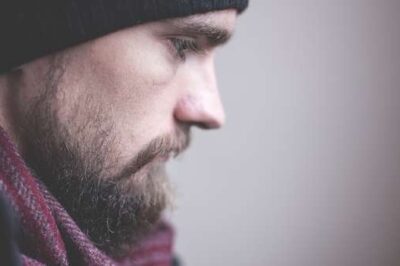Sometimes people become objects in order to survive emotionally. As an object, they can project anything they want to those around them in an attempt to be accepted and survive. Becoming an object can happen incrementally and can also happen immediately if you are used as an object by someone in an abuse situation.
As an object, you will have struggles connecting emotionally, especially in romantic relationships. As an object, you will also struggle with being authentic. I want to share with you what an object is and some of the characteristics of a person who chooses to be an object in order to survive.
If you made choices to survive that led you to become an object, your choices might have been the best you could have made at that time. It is important to not feel shame about the choices you made when you were a child or teenager in response to your circumstances. I made choices like that in the past. Just like mine, your choices were the best options you could make at the time, given the information you had.
Something I have learned along my personal journey to healing is that those choices I made and things I brought into my life to survive also kept me from living—really living.
As we progress through learning what an object is and what a being is, I want you to absolutely know that you can move from object to being and from surviving to living. Over my career, I have helped many people through this process. My hope is that as you walk through the process, lights will come on, and hope will begin to happen for you in a whole new way.
Here is an analogy I use with clients. I take a coaster off my table and hold it between us. I ask the client what it is. She always identifies the item as a coaster. I acknowledge the correct response and add that the item is an object. Like all objects, it can be measured and weighed. As an object, the coaster is limited: It is only so big, it weighs only so much. If I were to break 9 percent of the coaster off in a piece, only 91 percent of it would remain intact. If I remove another percentage of the coaster, even less of it would be intact. If the coaster had feelings, eventually the coaster could start keeping track of the percentage of itself it is losing or giving away and might become resentful.
Below are a few characteristics of people who struggle with being objects.
- Uncomfortable with their flaws. As an object, you are either all good or all bad. If you are all good by your own measure, you are lovable. If you are flawed, you are all bad and therefore unlovable. You will get angry if others address one of your flaws.
- Rarely apologize. The object person finds it difficult to believe she can be both flawed and loved. Rather, she believes she is either flawed or loved. Apologizing means she is flawed and puts her into the all-bad box; apologizing means she is not loved. Apologies, therefore, are rare and usually come only after much conflict or with resentment.
- Measures themselves. The object person measures himself against others. He sees himself as better than or less than for various reasons. Rarely does an object feel truly equal to other beings.
- They measure their giving. The object person feels she is like a book, so when she gives (especially in marriage or committed relationships) she is ripping out a page of the book. Eventually, she fears she will find herself without pages, empty.
- Giving is painful. I am not talking about time, gifts, abilities or money. Giving the heart is painful for an object.
- Feelings and connecting to feelings are a real challenge. An object’s relationship with oneself and others is about manipulating images and perspectives to look good or be acceptable. Feelings are an expression of our true self, our being, so this is a challenge for someone who is an object.
- Tends to read their spouse’s and other people’s minds, but almost always in the negative. They believe their spouses have certain motives, project those motives onto their spouses and treat them as if the projection is reality, regardless of the spouses’ insistence to the contrary.
- They tend to relate to themselves and others as functions. People in object relationships tend to see people more for what they do than who they are.
The Matrix movie trilogy is a good example of someone moving from object relationship to valuing others. Neo lives in the object world. He is given the chance to live in the real world and then given the chance to serve real people, and ultimately comes to value other souls enough to give himself totally to their freedom.
I understand the struggle. Moving from object to being has been one of the harder things I have ever done, but I am so glad I did. Because I did, I know almost anyone can do it. It takes work, but it is definitely a way to make progress.
Doug Weiss, Ph.D., is a nationally known author, speaker and licensed psychologist. He is the executive director of Heart to Heart Counseling Center in Colorado Springs, Colorado, and the author of several books, including Emotional Fitness. You may contact Dr. Weiss via his website, drdougweiss.com or on his Facebook, by phone at 719-278-3708 or through email at [email protected].







Leave a Comment
You must be logged in to post a comment.